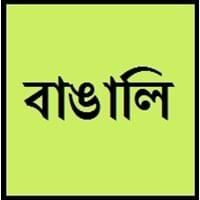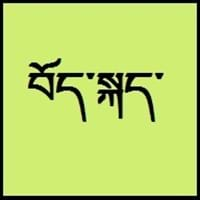Countries
Andaman and Nicobar Islands, Bangladesh, India, Sierra Leone
China, Nepal
National Language
Bangladesh, India
Nepal, Tibet
Second Language
India
Not spoken in any of the countries
Speaking Continents
Asia
Asia
Minority Language
Australia, Canada, Italy, Japan, Kuwait, Malaysia, Maldives, Nepal, Oman, Pakistan, Qatar, Saudi Arabia, Singapore, South Africa, South Korea, United Arab Emirates, United Kingdom, United States of America
China, India, Nepal
Regulated By
Bangla Academy, Paschimbanga Bangla Akademi
Committee for the Standardisation of the Tibetan Language
Interesting Facts
- Bengali language is the World's sweetest language.
- 21st February is celebrated as an International Mother Language day, which is based on Bengali language.
- Tibetan dialects vary alot, so it's difficult for tibetans to understand each other if they are not from same area.
- Tibetan is tonal with six tones in all: short low, long low, high falling, low falling, short high, long high.
Similar To
Assamese and Oriya
Not Available
Derived From
Sanskrit Language
Not Available
Alphabets in
Bengali-Alphabets.jpg#200
Tibetan-Alphabets.jpg#200
Scripts
Bengali, Brahmic family and derivatives
Tibetan alphabet, Tibetan Braille
Writing Direction
Left-To-Right, Horizontal
Left-To-Right, Horizontal
Hello
হ্যালো (Hyālō)
བཀྲ་ཤིས་བདེ་ལེགས། (tashi delek)
Thank You
ধন্যবাদ (dhonnobad)
ཐུགས་རྗེ་ཆེ་། (tujay-chay)
How Are You?
কেমন আছিস? (kêmon achhish?)
ཁྱེད་རང་སྐུ་གཇུགས་བདེ་པོ་ཡིན་པས།
(kayrang kusu debo yimbay?)
Good Night
শুভরাত্রি (shubhoratri)
གཟིམ་ལཇག་གནང་དགོས་། (sim-jah nahng-go)
Good Evening
শুভ সন্ধ্যা। (shubho shondha)
དགོང་དྲོ་བདེ་ལེགས།
Good Afternoon
ভাল বৈকাল (Bhāla Baikāla)
ཉིན་གུང་བདེ་ལེགས།
Good Morning
সুপ্রভাত (shuprobhat)
སྔ་དྲོ་བདེ་ལེགས། (nga-to delek)
Please
অনুগ্রহ করে (Anugraha karē)
thu-je zig / ku-chee.
Sorry
দুঃখিত (dukkhito)
ཀོང་དགས་། (gawn-da)
Bye
বিদায় (Bidāẏa)
ག་ལེར་ཕེབས་། (kha-leh phe)
I Love You
আমি আপনাকে ভালোবাসি (ami apnake bhalobashi)
ང་ཁྱེད་རང་ལ་དགའ་པོ་ཡོད་ (nga kayrâng-la gawpo yö)
Excuse Me
মাফ করবেন (Māpha karabēna)
དགོངས་དག བཟོད་དུ་གསོལ། ཐུགས་རྗེ་གཟིགས།
Dialect 1
Chakma
Central Tibetan
Where They Speak
Bangladesh, Burma, India
China, India, Nepal
Dialect 2
Hajong
Khams Tibetan
Where They Speak
Bangladesh, India
Bhutan, China
Dialect 3
Rarhi
Amdo Tibetan
Where They Speak
India
China
How Many People Speak
Not Available
Speaking Population
Not Available
Second Language Speakers
Not Available
Native Name
বাংলা (baɛṅlā)
བོད་སྐད་ (pö-gay)
Alternative Names
Bangala, Bangla, Bangla-Bhasa
Bhotia, Dbus, Dbusgtsang, Phoke, Tibetan, U, Wei, Weizang, Zang
French Name
bengali
tibétain
German Name
Bengali
Tibetisch
Pronunciation
Not available
Not Available
Ethnicity
Bengalis (Bengali people)
tibetan people
Origin
1000–1200 CE
c. 650
Language Family
Indo-European Family
Sino-Tibetan Family
Subgroup
Indo-Iranian
Tibeto-Burman
Branch
Indic
Not Available
Early Forms
Abahatta, Old Bengali
Old Tibetan, Classical Tibetan
Standard Forms
Bengali
Standard Tibetan
Language Position
Not Available
Signed Forms
Not Available
Tibetan Sign Language
Scope
Individual
Not Available
ISO 639 6
Not Available
Not Available
Glottocode
beng1280
tibe1272
Linguasphere
59-AAF-u
No data Available
Language Type
Living
Not Available
Language Linguistic Typology
Not Available
Not Available
Language Morphological Typology
Not Available
Not Available
Bengali and Tibetan Speaking population
Bengali and Tibetan speaking population is one of the factors based on which Bengali and Tibetan languages can be compared. The total count of Bengali and Tibetan Speaking population in percentage is also given. The percentage of people speaking Bengali language is 3.11 % whereas the percentage of people speaking Tibetan language is Not Available. When we compare the speaking population of any two languages we get to know which of two languages is more popular. Find more details about how many people speak Bengali and Tibetan on Bengali vs Tibetan where you will get native speakers, speaking population in percentage and native names.
Bengali and Tibetan Language Codes
Bengali and Tibetan language codes are used in those applications where using language names are tedious. Bengali and Tibetan Language Codes include all the international language codes, glottocodes and linguasphere.





